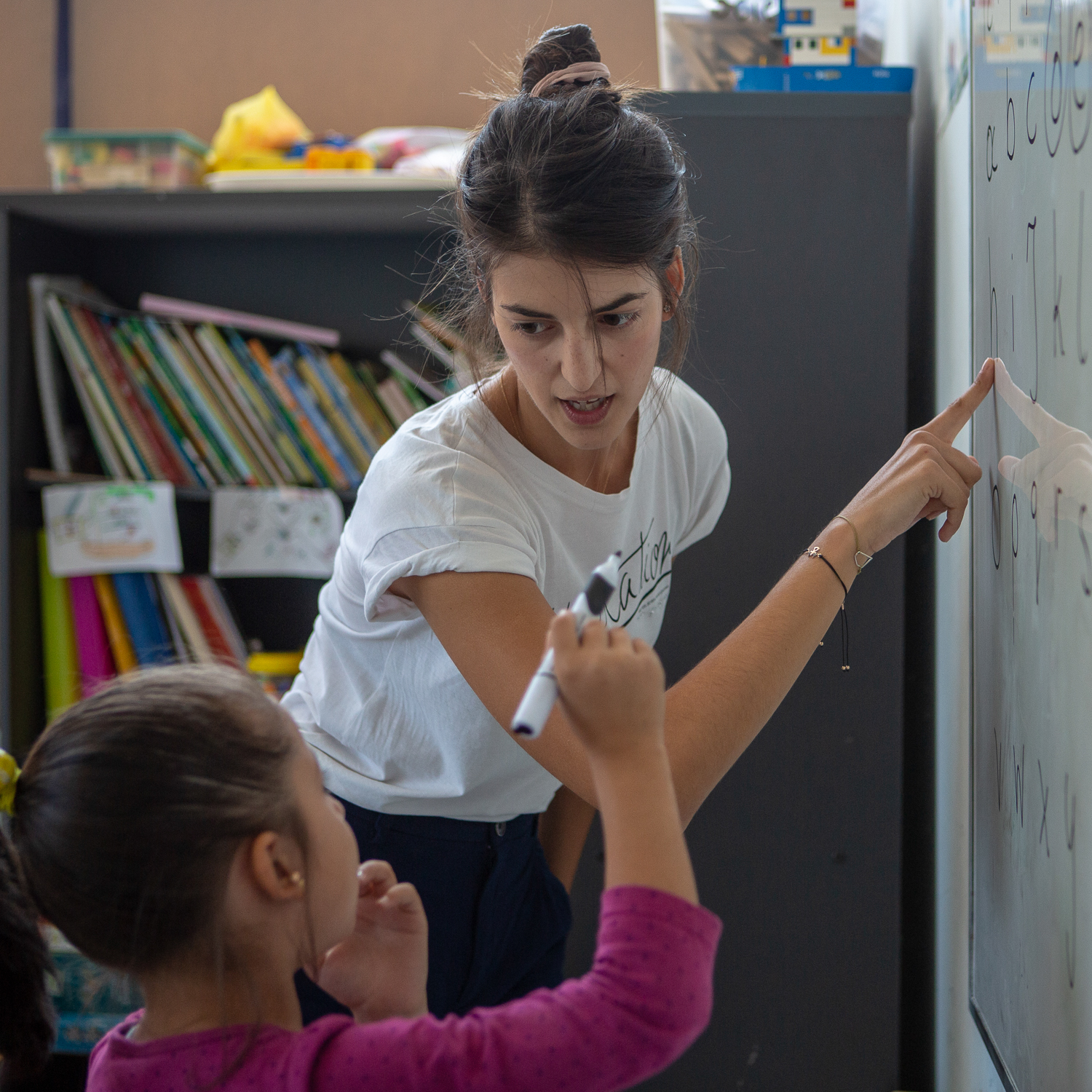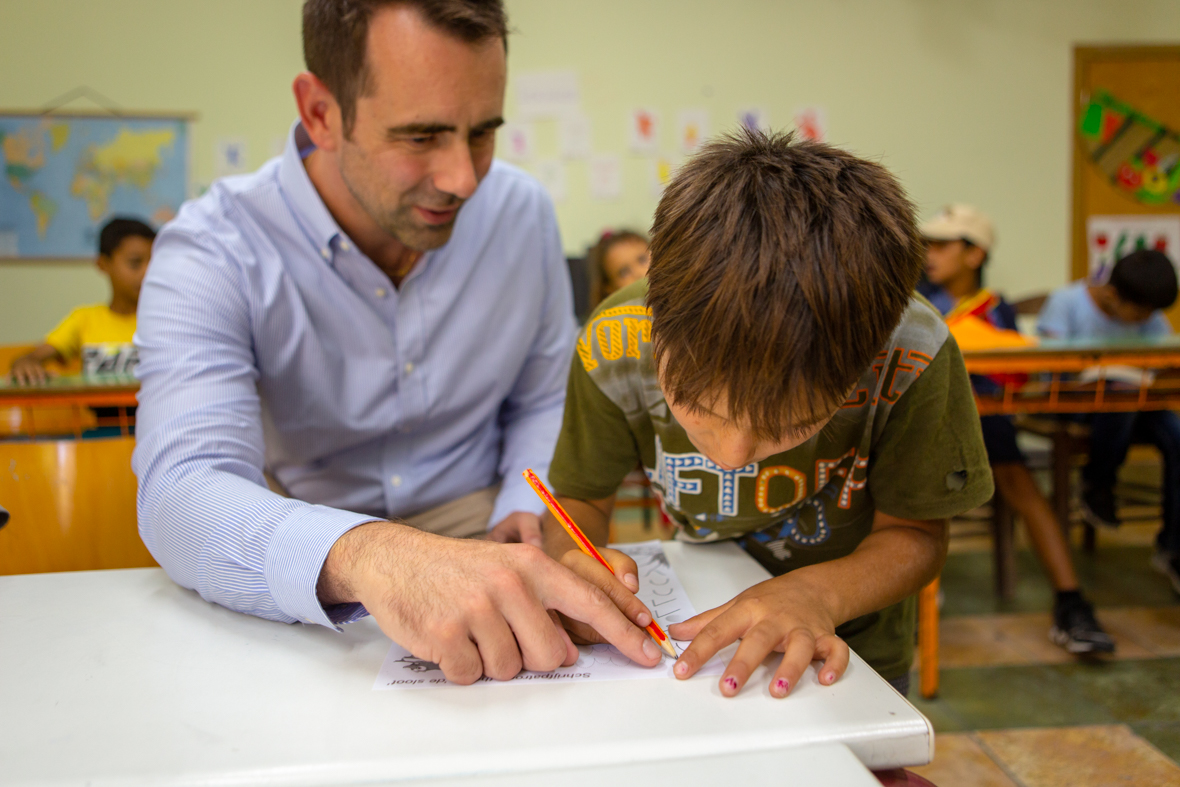Dignity, respect and care
Providing learning for 5,500 children was the start; we also went on to fund the expansion of the beloved Tapuat Centre, where young people of all ages could spend precious time away from the squalid conditions of a refugee camp. With three new classrooms, a large communal space, a Mother and Baby Corner and a Female-Friendly Space, the new wing of the centre meant hundreds of youth every day could experience a sense of dignity, respect and care.
2020 brought a new emergency to the islands. When Covid-19 threatened to exclude displaced children all over again, Theirworld was able to secure €1.35m in funding to help continue the provision of education in the region. We also leveraged our experience of working on the Greek islands to publish a report, ‘Finding solutions to Greece’s refugee education crisis’, whose proposed way forward was adopted by UNICEF and the Greek government. The outcome was a pathway for 30,000 refugee children to receive the education they deserve.
Since 2015, when only 2% of global humanitarian aid was being spent on education, Theirworld has diligently gathered evidence about the importance of education in emergencies and shared it with policymakers at the European Union. Our goal was to demonstrate why we felt the international community should increase education spending to at least 4%-6%.
In 2019, after four years of engagement with Theirworld, the EU announced that it had exceeded the recommended 4-6% target and dedicated 10% of its aid spending to education. The move set a new benchmark and brought us one step closer to getting every child access to a school education.
Of course, the largest refugee crisis since World War II means there is a lot more work to do. And the needs can be complex. In Turkey we work with partners who train teachers to identify signs of trauma in children who exhibit troublesome behavioural patterns. Our Trauma Informed Schools programme works to ensure these teachers also have the skills to address these youths’ needs by training them in delivering psychosocial support.
More than 5,000 children have benefited from the programme; our hope is that the dedicated care and attention they receive provides the help they need to adjust to their new life and, one day, become who they were meant to be.
Children are the future doctors, lawyers, scientists and artists. Whether those children who are displaced get the opportunity to fulfil their potential – in their homelands or their new host countries – depends on the support they get. It’s only by receiving structure, care and education that a generation of young people will be able to build a new future for themselves, their families and their societies.
Whether children’s lives are disrupted by conflict, pandemic or disaster, providing them with quality education as soon as possible is key to ensuring their long term wellbeing. We can only do this if the international community joins us to provide the will and financial support to prioritise the right of every child to a safe place to learn.




